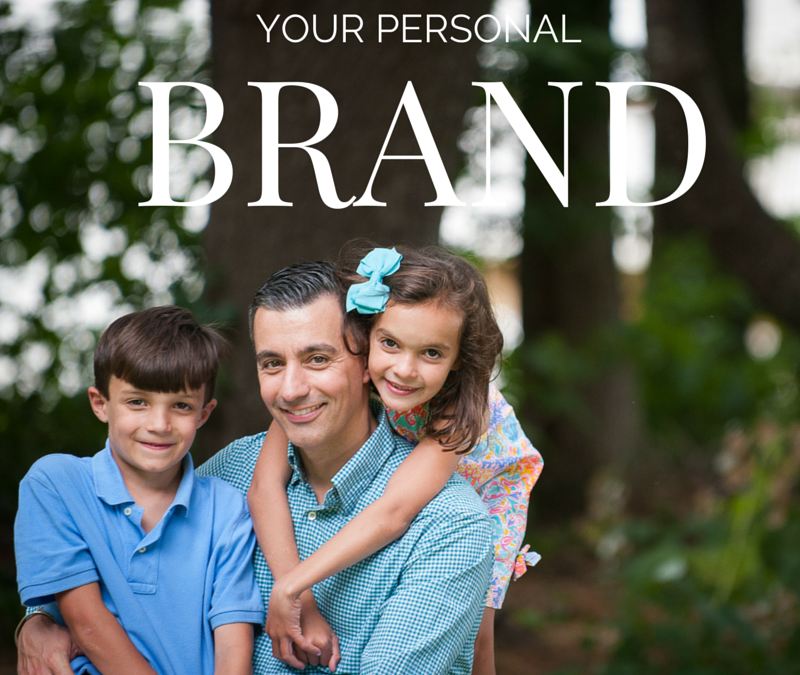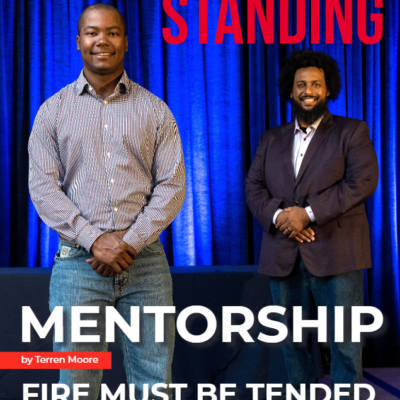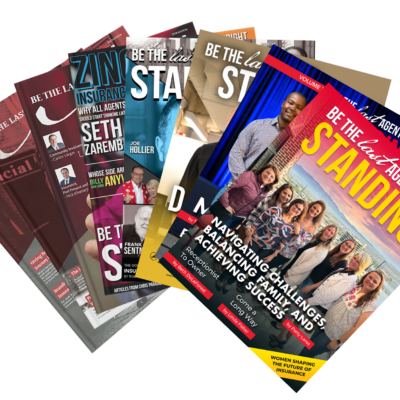An essential part of networking today is to be “memorable” for the right reasons. OK, what does this mean? It means recognizing and developing your personal brand. Without the creation of your personal brand, it will be very difficult to network effectively.
A brand is often described as a “collection of perceptions” people have about a product, service or organization. It is what sticks in their minds and helps them make buying decisions. In the insurance industry it’s all three. But people don’t only have perceptions about products, services and organizations; they also develop a collection of perceptions about the people they meet. A personal brand is as important as your agency’s brand. Whether you own your own agency or work for one, your personal brand will play a huge role in your networking success.
I say we all have a personal brand. Each and every one of us has our own unique personal brand that influences other people’s decisions about whether to do business with us and our agency. This personal brand has a powerful impact – not only on the people we meet and do business with, but all of the other people within their networks too. People (customers/prospects) talk about us just as they talk about products, services and organizations.
When you consider that research suggests that word-of-mouth recommendation has a far greater influence (more than 85%) over how a person makes a purchase than other forms of marketing, you can start to appreciate the potential impact of your own brand.
But how do you recognize what your personal brand is? How can you shape it so that you influence other people positively? That’s the million-dollar question.
How do I know what my personal brand is?
First of all I would recommend to you to read Andy Milligan’s book called “Brand it Like Beckham.” In Andy Milligan’s book he outlines the key factors of David Beckham’s brand (which we all know is amazing). The two factors are that it’s split into his public and private “self” and what he is very well known for in each area. His “private” brand, which is anything but private (and it’s done on purpose), are his roles as son, father and husband while his public brand includes being a celebrity, soccer player, and fashion icon.
These are the two core elements of what has become a successful brand combining the “ordinary” London boy (which we all know he is far from ordinary) with the more exceptional professional soccer player and celebrity. But it doesn’t stop there.
There are other characteristics, including Beckham’s ethics, values, motivations, ambitions, personality, interests and his numerous connections, as well as more visible qualities such as his appearance and communication style. In my eyes he is one of the best communicators through his fashion in today’s era.
The most important part of Beckham’s personal brand is how it is broader than his professional reputation alone. His brand recognizes that the whole person needs to be considered when identifying a personal brand and he has mastered it.
How to apply this personal brand lesson to your life, can you describe your core brand? In David’s life he has a:
Private Brand: entertainer, Londoner, endorphin junkie
Professional Brand: networking expert, speaker, coach and trainer.
I wouldn’t stop there; I would add additional qualities and characteristics such as ethics, morals, ambitions, motivations, personality etc….
I wanted to share a brand lesson on someone like David Beckham because everyone knows who is and he makes a great example of someone who has mastered his Personal Brand. You can learn a lot more from Andy Milligan’s book.
Why should I care about my personal brand?
There are 3 major components where our own and other people’s awareness of our brand can help or hinder you in your networking:
Component 1 – Creating a powerful “impact”
Your “impact” on others happens in 3 stages:
- Your immediate impact: When they first see you, what do they think even before you’ve opened your mouth? Your first 7 seconds may help you or hinder you. This is the most powerful part of the impact.
- The initial conversation: What you say and how you say it, how you build rapport. The tone of how you talk to others matters along with your facial expressions.
- After the conversation is over: How you follow through with that person or group and develop the relationship. I personally feel a hand written card is a critical part of this final process. Yes, call me old school but I feel it’s a major ingredient to your “after the conversation” success.
Component number 2 – Raising your personal profile
Whatever you or your agency put out there (not only in the internet world) in terms of your personal brand will dictate how you are remembered, recognized and ultimately recommended or not recommended to other people.
Component number 3 – Allowing your contacts/connections to inform and connect you. Only if your contacts or connections are clear about who you are (personal brand) and what you are trying to achieve, and they TRUST you enough, will they be able and willing to pass you the information you are looking for and connect you with the right people. In our industry, it isn’t all about meeting the right people. This will only happen if we can get into their Trust Tree.
With all this being said you need, to be able to identify and communicate. Your personal brand is an essential ingredient of successful networking. If you are working with others, such as your agency’s marketing team or a personal brand consultant then the personal brands of all these individuals will determine how your company or team brand is formed.
How do I promote my personal brand?
You can only get to this step after you’ve identified your personal brand and you are very comfortable with it. Then you need to market it. It’s best to do this in a way that emphasizes your personal brand qualities. Let me give you an example. A networking expert, Carlos Vargas of Vargas and Vargas out of Massachusetts, demonstrates to his community he is networking expert. It’s not enough to simply say “this is what I am and I’m an expert”. If you follow him on Facebook you will see he is out in his community everyday, promoting his community and his clients. All of his posts say he’s an expert, without actually saying it.
Here are some of the things you need to do to have success:
- Become that expert: Gather as much knowledge as possible about networking events in your area, including events and groups on networking skills, new ways of networking, the benefits of networking, etc. A great way to become that networking expert is to go onto Facebook and follow great networkers in our industry such as Carlos Vargas, Dave Jackson, Tom Larson, Mike Stromsoe, Linda Rey or Claudia McClain. You can and will learn a lot just by following these industry leaders.
- Be willing to share your expertise: This may mean offering free advice or information, offering mentoring or coaching, being a motivational leader, or pointing people in the right direction for their own networking. The best networkers, like Mike Stromsoe or Claudia McClain, are always looking to help and they are not looking for anything in return. They are two great examples of people willing to share their expertise. Sharing their expertise is what makes them so successful!
- Be well-connected and share your connections with other people: Be the connector. You really need to be walking the walk and talking the talk. What does this mean? It means being seen at events, moving around with ease, and being able to connect people like Carlos Vargas who is supporting causes in his community every single day and promoting it on Facebook and other social avenues.
What NOT to do:
- Don’t become a networking bore: With all the social noise today you do not want to become that bore because people will shut you off or tune you out very quickly. Become more than just a networking expert. You don’t want people to think “Oh no, he’s going to talk about networking again”. You need to be prepared to have conversations about more than networking. You will need to be able to talk about a wide range of topics such as local sports, politics, etc. which will get others to see you as a great networker.
Keeping your personal brand fresh!
Every brand needs to be kept fresh and relevant, especially in today’s fast moving society. Your brand needs to reflect changes in your community and market as well as changes in your own personal goals and or ambitions. Remember one key fact, it is YOUR personal brand and YES you can change your personal brand. It’s your brand after all so you need to grasp it and own it. Make sure it’s what you want it to be and then get it out there, working for you and your insurance business.





